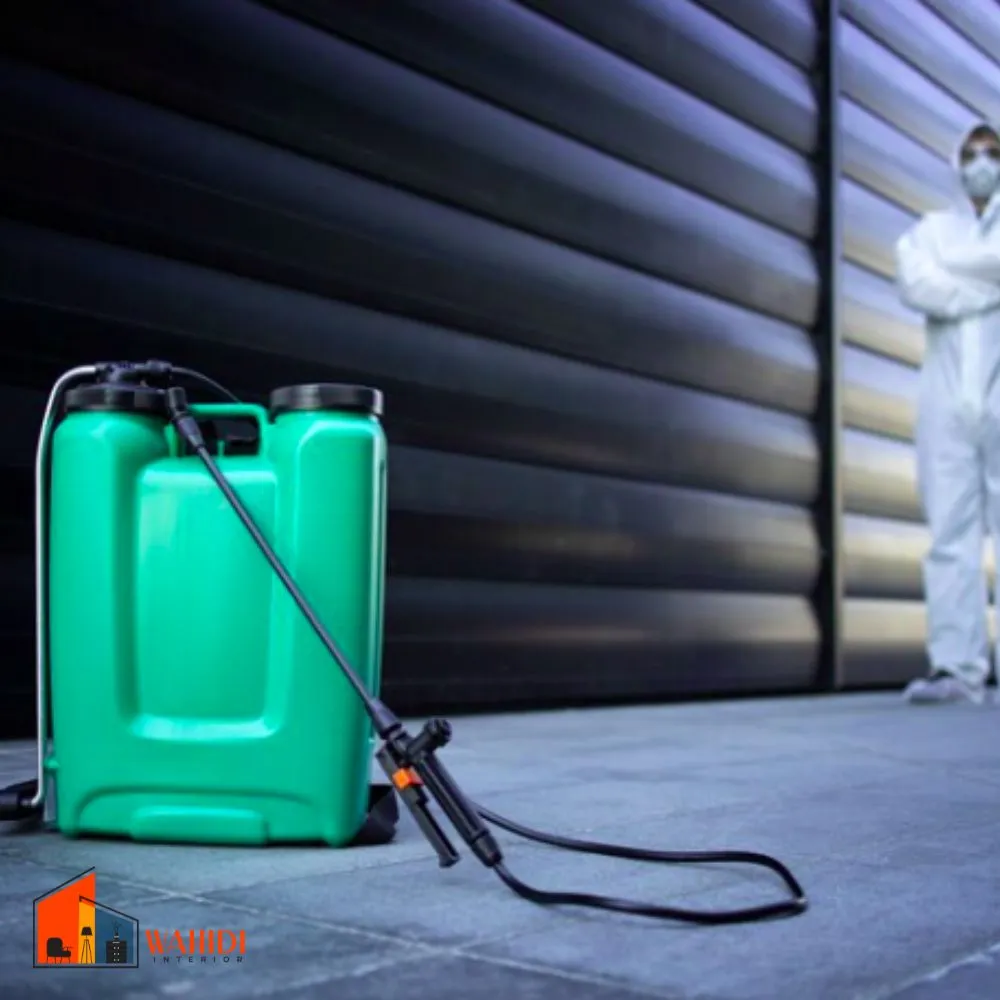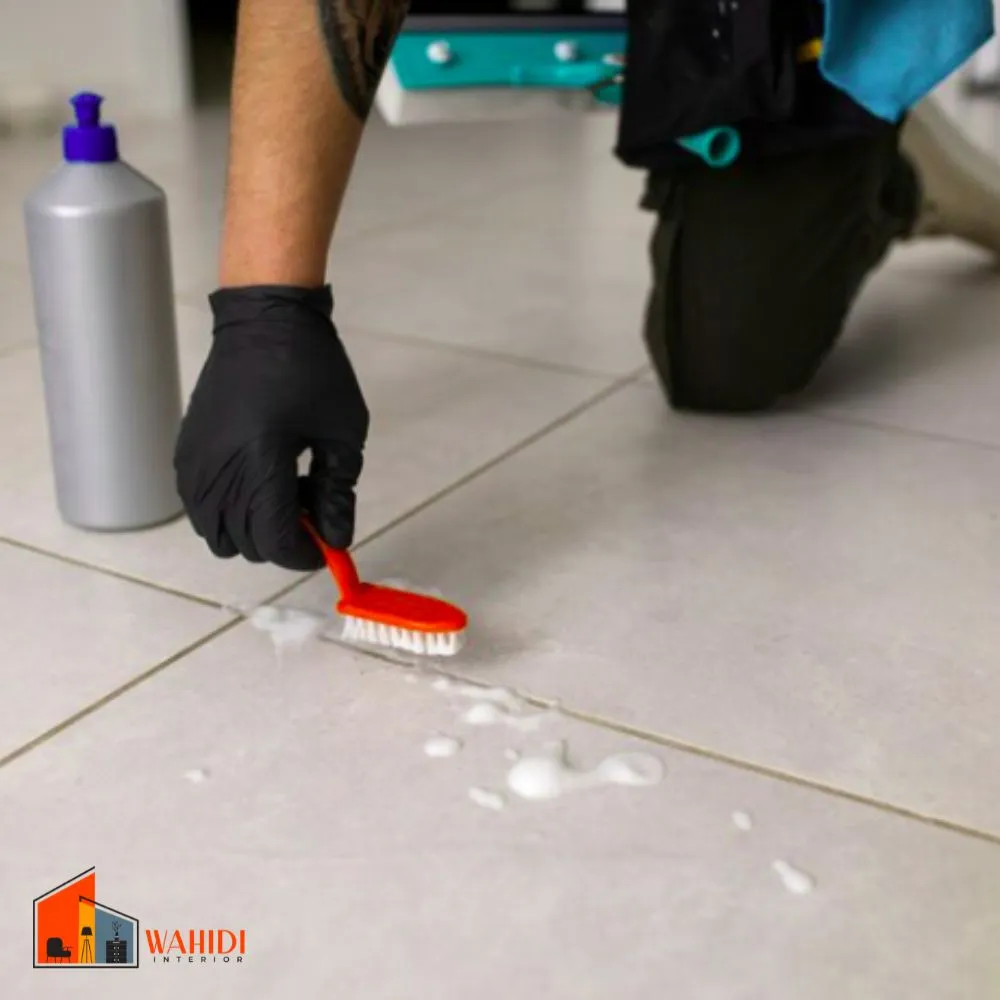Antibacterial flooring is a type of flooring material that has been treated with special chemicals or coatings that make it resistant to bacterial growth. These chemicals work by either killing bacteria or preventing them from multiplying, making it easier to clean and maintain the floor. This technology is particularly useful in high-traffic areas such as hospitals, schools, restaurants, and offices where hygiene is critical.
Wahidi Interior, a leading interior design company in Dubai and UAE, offers antibacterial flooring solutions to its clients as part of its commitment to providing innovative and sustainable design solutions. The company offers a wide range of antibacterial flooring options from leading brands such as Tarkett, Forbo, and Altro. These brands use advanced technologies such as Silverion® and Polygiene® to provide superior antibacterial protection.
By entering data fields and press submit button to get details of our collection of Antibacterial Flooring in Dubai and UAE

Antibacterial flooring is a must-have in healthcare facilities such as hospitals, clinics, and nursing homes. The floors in these settings are subjected to high foot traffic, spills, and moisture, which can lead to the growth of bacteria and viruses. Antibacterial flooring can significantly reduce the risk of infection and disease transmission, making it an essential component of any healthcare facility.

Epoxy flooring is a type of antibacterial flooring that is made by mixing an epoxy resin with a hardener. Epoxy flooring is highly durable, resistant to wear and tear, and can be easily cleaned and maintained. It is commonly used in healthcare facilities, food processing plants, and commercial buildings.
Vinyl flooring is a type of antibacterial flooring that is made from PVC (polyvinyl chloride) material. Vinyl flooring is highly versatile, easy to install, and can be easily cleaned and maintained. It is commonly used in healthcare facilities, schools, and daycare centers.
Tile flooring is a type of antibacterial flooring that is made from ceramic or porcelain materials. Tile flooring is highly durable, resistant to wear and tear, and can be easily cleaned and maintained. It is commonly used in healthcare facilities, food processing plants, and commercial buildings.
Rubber flooring is a type of antibacterial flooring that is made from natural or synthetic rubber materials. Rubber flooring is highly durable, resistant to wear and tear, and provides excellent slip resistance. It is commonly used in healthcare facilities, gyms, and sports facilities.
Concrete flooring can be treated with special chemicals or coatings to make it antibacterial. Concrete flooring is highly durable, resistant to wear and tear, and can be easily cleaned and maintained. It is commonly used in commercial buildings, warehouses, and industrial facilities.
Wahidi Interior, a prominent interior design and fit-out company in Dubai and the UAE, suggests investing in high-quality antibacterial flooring due to its multiple benefits. Antibacterial flooring reduces the risk of infection and disease transmission, is more cost-effective in the long run due to its durability and ease of maintenance, provides excellent slip resistance for safety, is made from recycled materials for sustainability, and is available in a wide range of colors, patterns, and designs for aesthetics. Wahidi Interior offers a variety of antibacterial flooring solutions that meet these criteria and can help businesses and organizations select the best option to meet their specific requirements. Contact them today to learn more about their antibacterial flooring options and how they can assist your business or organization in staying hygienic, safe, sustainable, and aesthetically pleasing.
Antibacterial flooring is a type of flooring material that contains additives or technologies that prevent the growth and spread of bacteria and viruses on its surface.
Antibacterial flooring works by either killing bacteria or preventing their growth through the use of antimicrobial agents, silver ions, or copper ions.
Antibacterial flooring may have a higher initial cost than traditional flooring materials, but it can be more cost-effective in the long run due to its durability and ease of maintenance.
Yes, antibacterial flooring is commonly used in high-risk areas like hospitals, food processing facilities, and other environments where hygiene is critical to prevent the spread of bacteria and viruses.
Many antibacterial flooring options are made from recycled materials, making them an eco-friendly choice for businesses and organizations looking to promote sustainability.